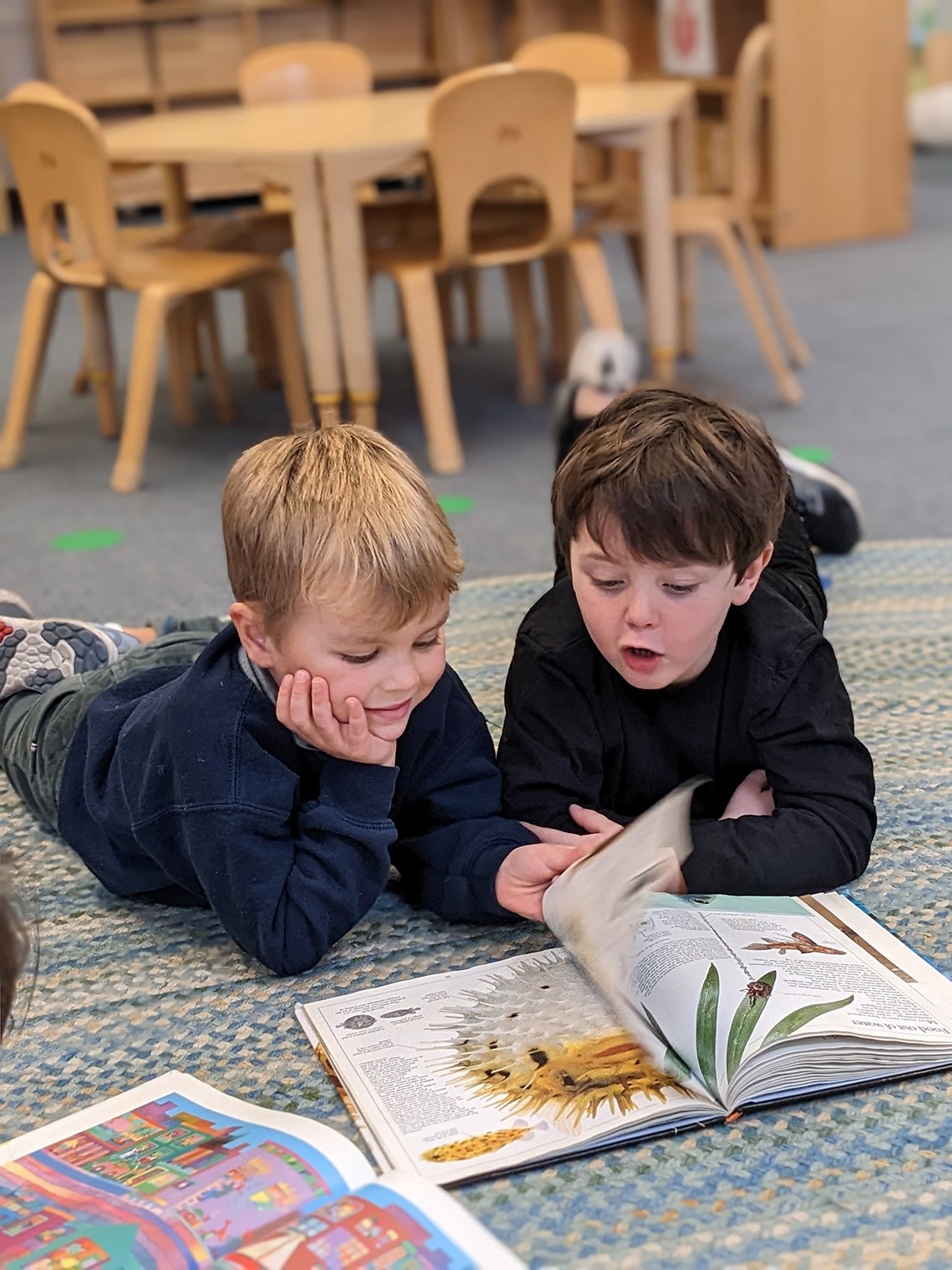
Early Childhood Age 3-5: Lifelong Learners Begin Here
Reggio Emilia-Inspired Approach
Child-Centered Responsive Classroom Decor Features Natural Light and Students’ Work
Developmentally-Appropriate, Robust Academic Curriculum Embedded with Art and Music
7-1 Student-to-Teacher Ratios
Opportunities for Hands-on, Self-Directed, and Collaborative Play
Daily Morning Worship Meetings Where Children Develop Social-Emotional Skills, Celebrate Birthdays, and Sing (Families Welcome!)
Park Visits Every Day to Adjacent Church Square Park, Augmented by Walking Trips in Hoboken and the Use of the School’s Newly Refurbished Gym/Auditorium
As a Mustard Seed student, your child will be known, loved, and challenged at each age and stage of their development. Preschool children are introduced to their role of successful scholar by nurturing, experienced teachers. (Our head preschool teacher, Ms. Jordan, earned her undergraduate degree at Harvard!) In keeping with our Reggio Emilia-inspired approach, beautiful, light-infused learning environments enriched with an abundance of accessible and captivating materials spark curiosity through all of the senses.
The Shared Space (Atelier), positioned steps from their academic room, facilitates imaginative exploration of the creative and performing arts. The school-adjacent Church Square Park and frequent field trips to destinations in the greater Hoboken community are also utilized for hands-on experiences in their daily studies. The world is their classroom.
Interdisciplinary and Intellectually Rigorous Curriculum
Our academic goals may seem highly ambitious for an early childhood curriculum, however, we believe in the child’s natural, extraordinary potential for wonder and learning, and intentionally strive to honor it. We also believe in the power of guided play. To begin a recent study unit on The City, for example, students studied picture books and then engaged in observational walking tours of Hoboken to identify what they saw in the literature. They began to notice the city workers who cared for the grounds and helped them safely cross the street at daily Park Time. They worked together in the classroom to design and construct their own city with blocks. They visited the Hoboken firehouse and talked to firefighters after creating collages of firetrucks in art. They delivered group-written thank-you notes to express their gratitude to city service workers after role-playing with uniforms and props in the studio. Perhaps most significantly, in response to student suggestions, they also constructed taxis, trucks, and signage for their block city with crayon drawings. While comprehensive and innovative, our preschool curriculum intentionally draws on the child’s personal agency, incorporating the expressed interests of our students in developing a tailored curricula.
Student learning is made visible. Each student’s progress is closely observed and documented by their teachers, and communicated to parents in both formal and informal meetings.
Students assume an active role in their own learning.
Although we are located in the heart of Hoboken, students have daily opportunities to connect with nature.
How do we know that the MSS approach is effective? Our alumni tell us: Mustard Seed is the place where they discovered their love of learning.
For more examples of our emergent curriculum in practice, check out a story about measurement in the Head of School blog or a feature on spiders in Inspire, our magazine.
Sample Curriculum
OCTOBER 2023
Numeracy: patterns, counting students/other daily objects
Literacy: Rhymes, songs and chants, getting-to-know-each other stories, drama storytelling
Theme: Creation
Physical Education: Spacial awareness
Music: Differentiating and using speaking voice, whispering voice, calling voice, and singing voice
Art: Self-Portraits in paint and pen drawing
Trips/Other Experiences:Walking trips to explore creation, trip to Synagogue
Flexible Scheduling Choices
PK3: Morning classes: Three (M/W/F) or five mornings a week with an extended day option until 3 PM
PK4: Morning or full day classes five days a week with before school care and extended day options to 6 PM
A Solid Foundation for Scholarly Pursuits
-

Independent and Collaborative
Mustard Seed students are presented with multiple opportunities every day for both independent and collaborative reasoning and calculations. Early in our school’s history, we intentionally chose a Reggio-inspired approach after traveling to Italy to observe the program firsthand. Like Montessori, the Reggio pedagogy is child-centered, however, much of our students’ work is performed with their peers. Reggio classrooms hum with conversation as students collaborate on projects that spark their curiosity and engage their intellect. Collaboration is one of the four C’s identified by learning experts as an essential 21st century skill.
-

Educating the Whole Child
At Mustard Seed, we tend to the heart of the child as well as the mind. We employ Bible stories and songs to teach concepts around compassion, integrity, empathy, and resilience in brief, daily worship services. Students are encouraged to practice those lessons while they paint canvases together in the studio, play board games, share the slide on the playground, and take turns speaking during group time. Every student is celebrated as a unique and beloved child of God and member of the community. Developmentally-appropriate activities lay the foundation for an understanding of and commitment to global citizenship as the child matures.
-

Social-Emotional Intelligence
Because we know the children so well and connect with them where they are, we often anticipate potential conflicts before they arise. Rather than play the role of traffic cop, teachers seek opportunities to act as coaches in the moment to help the child develop conflict resolution skills. Advanced capabilities in conversation and other relationship-building strategies, established in preschool, build confidence and travel with that student throughout their academic career as settings become increasingly complex.
A Peek Inside the Classroom
“Young children learn so much through playing games. Playing math games help children gain a more well-rounded understanding of math concepts. It also provides lots of practice while having fun.
Children learn self-regulation through game playing. Learning to wait your turn and following the rules are important lessons. Game playing can help lengthen a child's attention span, build coping skills, and promote resilience when things don't go their way.
When children play board games, they learn to identify colors, count spaces, and develop hand-eye coordination and dexterity in moving pieces around the board.
In addition to teaching them about teamwork, patience, and how to win and lose gracefully, board games can actually benefit kids' brains and language development. Outdoor games motivate children to move and practice control of their body and impulses while having fun. They also help children to come out of their shell and develop friendships.”—Ms. Gluckow
“At Mustard Seed, the first six weeks are the season for going slow and establishing the routines and procedures that will allow the children to go fast later on. Preschool children work to understand and master competencies like taking turns, sitting criss-cross in a circle during group time, and caring for the materials and animals in the classroom. Those behaviors will become second nature as the year progresses and the child grows in independence.”
Honing Skills
1. Identify the emotion
2. Express the emotion
3. Develop strategies for dealing with the emotion
"We spend a lot of time in the preschool classroom intentionally developing social-emotional skills, and we teach strategies for managing big emotions that might feel overwhelming or frightening for a child. When challenged with hot emotions, one action plan might be the candle method where a child can pretend each finger of one hand is a lit candle. Taking the time to blow out each candle individually provides the child space to regulate and cool down.
Transitioning from one activity to another, particularly from a favorite interest, can be a time of high emotions. With the teacher's help, a child may become aware that moving inside from the playground is often difficult for them, for example. The student is encouraged to recognize those feelings, express them (I'm frustrated that I can't stay outside and play!), and seek ways to deal with their emotions, maybe by holding their teacher's hand during the move."—Ms. Jordan, Head Preschool Teacher


















